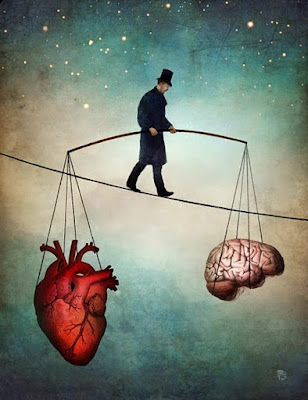Moving on, after cubes, triangles and kangaroos, a few more quotes and thoughts on the Dharma. My own heart is in dialogue, between Faiths, between individuals. Inspired in part by those such as Thomas Merton, who has written:-
The beginning of love is to let those we love be perfectly themselves, and not to twist them to fit our own image. Otherwise we love only the reflection of ourselves we find in them.
And also:-
The more I am able to affirm others, to say 'yes' to them in myself, by discovering them in myself and myself in them, the more real I am. I am fully real if my own heart says yes to everyone............ This does not mean syncretism, indifferentism, the vapid and careless friendliness that accepts everything by thinking of nothing. There is much that one cannot 'affirm' and 'accept,' but first one must say 'yes' where one really can.
Though a Buddhist myself, hopefully this opens the mind/heart, and the wisdom of others can be recognised, irrespective of a word or two here and there, a thought expressed, causing a hiccup or two. Here is a 5th century writer, Pseudo-Dionysius, and his words bring some sort of "comfort", support and inspiration in this often despairing world:-
With our minds made prudent and holy, we offer worship to that which lies hidden beyond thought and beyond being. With a wise silence we do honor to the inexpressible. We are raised up to the enlightening beams of the sacred scriptures, and with these to illuminate us, with our beings shaped to songs of praise, we behold the divine light, in a manner befitting us, and our praise resounds for that generous Source of all holy enlightenment, a Source which has told us about itself in the holy words of scripture. We learn, for instance, that it is the cause of everything, that it is the origin, being, and life. To those who fall away it is the voice calling, "Come back!" and it is the power which raises them up again. It refurbishes and restores the image of God corrupted within them. It is the sacred stability which is there for them when the tide of unholiness is tossing them about. It is safety for those who made a stand. It is the guide bringing upward those uplifted to it and is the enlightenment of the illuminated. Source of perfection for the being made perfect, source of divinity for those being deified, principle of simplicity for those turning toward simplicity, point of unity for those made one; transcendently, beyond what is, it is the Source of every source. Generously and as far as may be, it gives out a share of what is hidden. (Pseudo-Dionysius The Complete Works 51)
Really, I know little of prudence and holiness, but I see where the guy is coming from. The words make me think of others from a Buddhist text, the Udana, 8:3:-
There is......a not-born, a not-brought-to-being, a not-made, a not-conditioned. If there were no not-born, not-brought-to-being, not-made, not-conditioned, no escape would be discerned from what is born, brought-to-being, made, conditioned. But since there is a not-born, a not-brought-to-being, a not-made, a not-conditioned, therefore an escape is discerned from what is born, brought-to-being, made, conditioned.
Myself, I don't really like the word "escape" here. Escape speaks too much of betrayal, betrayal of this world for some imagined other beyond the grave. I prefer "transformation", samsara is nirvana the "going forth" is at the same time the return.
A last quote (my coffee is getting cold and almost time to go - shopping to get, meals to cook, grandchildren to collect) , this very often quoted on Buddhist Forums, seen as some sort of freethinkers charter. But the words "commended by the wise" should bring us to our senses, and make us begin to wonder just where wisdom is to be found in this world of ours. From the Theravada Kalama Sutta:-
Do not be satisfied with hearsay or with tradition or with legendary lore or with what has come down in scriptures or with conjecture or with logical inference or with weighing the evidence or with liking for a view after pondering over it or with someone else's ability or with the thought "The monk is our teacher." When you know in yourselves: "These things are wholesome, blameless, commended by the wise, and being adopted and put into effect they lead to welfare and happiness," then you should practice and abide in them....
I love to "abide" in McDonalds, but must go.








No comments:
Post a Comment